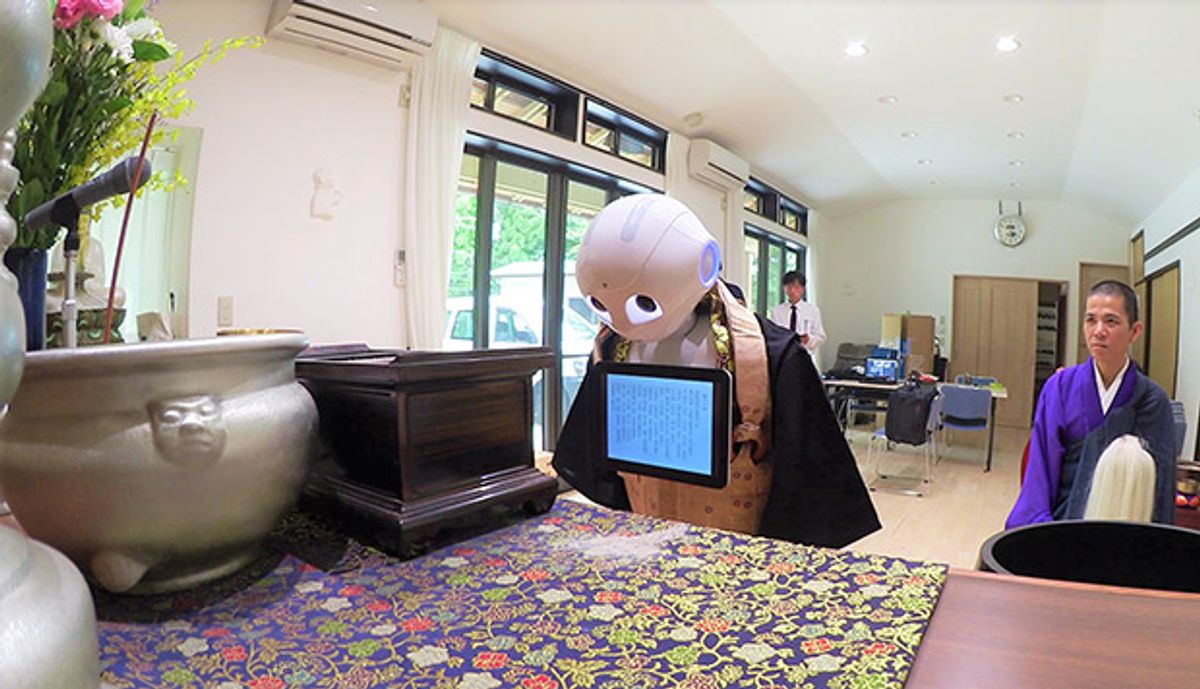Robots excel at predictable, repetitive tasks, and what could be more predictable and repetitive than death? In Japan, a plastic moulding company called Nissei Eco (which also does funeral arrangements, I guess) is planning to introduce SoftBank's Pepper robot as a cheaper substitute for human priests reading sutras at Buddhist funerals.
The average cost of a funeral in Japan is somewhere between two and three million yen, as of the most recent study of the industry, which is nearly a decade old. That works out to between US $25,000 and $30,000, which is twice or even three times as expensive as the average funeral in the United States. Like most things, much of the cost is related to the fact that there are humans involved who you have to pay to be there because they'd almost certainly rather be somewhere else.
And this, of course, is where Pepper comes in. Nissei Eco is offering the small, white, and aggressively shiny humanoid robot, suitably attired in the robe of a Buddhist monk, as an optional add-on in their a la carte menu of funeral services. Pepper can chant sutras from four major Japanese Buddhist sects, can be set up to livestream the ceremony to anyone who can't be there in person, and appears to be able to bow when appropriate. At least with the livestreaming, Pepper does offer a feature that most humans can't. And with a per-funeral cost of just 50,000 yen (about $450), the robot costs “significantly less than the cash offerings typically made to Buddhist priests,” according to the Japan Times.
It's not a huge surprise that Japan is the initial market for a robotic service like this, although it'll be interesting to see whether or not it catches on. There's certainly a question of whether there are particular aspects of a given religion that, for whatever reason, depend on a real live human to imbue them with meaning. There are some subdivisions of Buddhism (including Tibetan Buddhism) that encourage the use of technologies like prayer wheels to help make prayer more efficient: Spinning a prayer wheel (which can even be done electrically), they believe, will have a similar spiritual effect to reciting the prayer inscribed on it.
Japan's population is aging rapidly; one of the consequences of this is a growing funeral industry (hence the need for affordable robot priests), but it also means that Japan is very focused on finding ways to be able to adequately and respectfully care for seniors. Out of necessity, this is going to mean robots. Lots of robots. If Pepper can be accepted as a priest, we can hope that it means robots will be accepted as a caregivers too.
[ @Press ] via [ Japan Times ]
Evan Ackerman is a senior editor at IEEE Spectrum. Since 2007, he has written over 6,000 articles on robotics and technology. He has a degree in Martian geology and is excellent at playing bagpipes.




